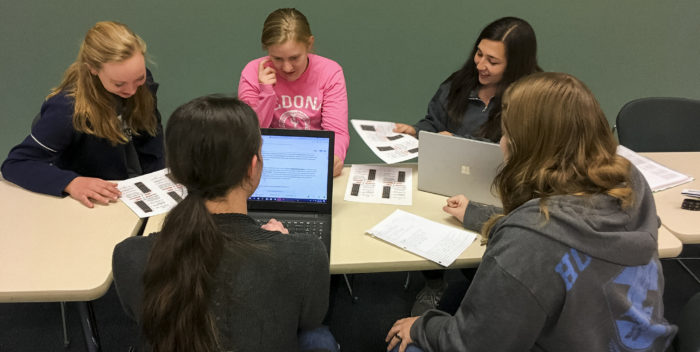Campus Officials Warn Students and Staff about Cybersecurity
The Student Senate PR Committee works together to publish information to the student body. Concordia’s campus has been warned about the importance of cyber security. Photo courtesy of April Bayer.
By Autumn Johnson
Students and staff on campus have fallen victim to various cyber attacks over the past month. Campus staff say cybersecurity continues to be a pertinent issue for anyone using technology.
Recent emails alerted the Concordia community about two types of cyber attacks called spear phishing and cyberextortion. Cyberextortion is a form of blackmail, usually via email or social media. It can be used to elicit money from the receivers by threatening them. Spear phishing refers to impersonation via email made to deceive people and steal personal information.
“It’s almost like this area of crime is evolving. People are figuring out different angles to take,” Vice President for Student Affairs and Athletics Gene Brooks said. “These people who are doing this (are) learning more. They’re becoming a little bit more crafty, and they have to adapt their methods as people start to figure them out and get onto them.”
These scams can target anyone. Concordia staff and students have experienced at least three known attacks. Faculty are typically at higher risk for spear phishing due to their access to university information. Concordia takes safety precautions to protect students and staff by filtering emails and educating the community about cyber safety.
“(It is important to inform the campus about cybersecurity because) there’s so much information online. If somebody was to get ahold of the information, they can steal your personal identity,” Professor of Computer Science and Chief Information Officer Kent Einspahr said. “It’s a very serious situation.”
Anyone who receives a suspicious email is advised to ignore and delete the email. A few ways to protect against cyber attacks include installing virus detection on devices, not downloading unknown software, and not opening unfamiliar links or attachments.
See the “Cybersecurity Threats/Attacks” announcement that was sent to the campus on Oct. 19 or contact Gene Brooks for more information about these scams.













